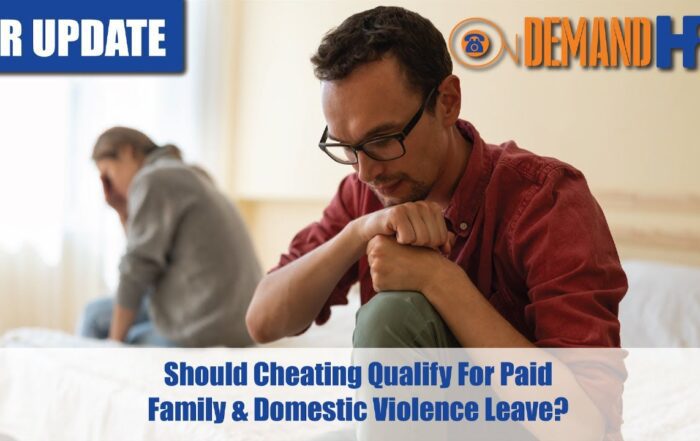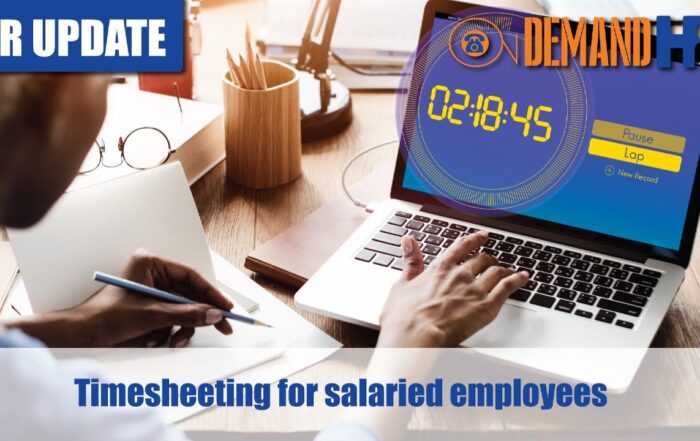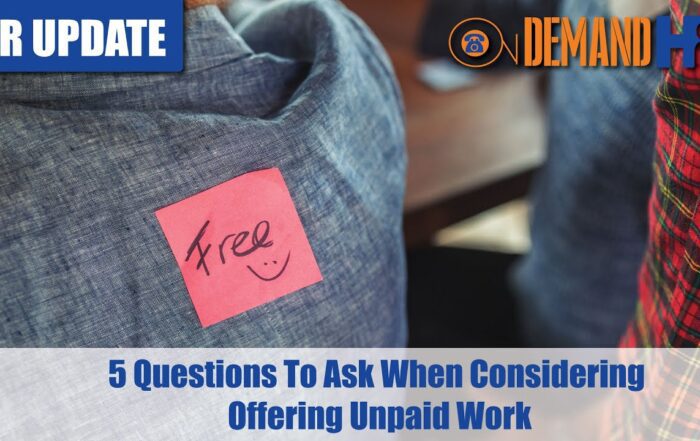Award Coverage & FWO Enforcement
One of the typical first steps for On Demand HR members is top undertake a Workplace Relations Review & Structural implementation. One of the first steps of this process is to assess which (if any) Modern Award or Awards cover their employees. This is an essential step as the consequences of incorrect assumptions lead to underpayment claims, as well as potential fines and penalties from the Fair Work Ombudsman. Today, we are going to unpack some of the key considerations and common mistakes that businesses make when making Award coverage.
Please see below for a full transcript of this video
Share the HR or workplace relations challenge facing your business and one of our experienced consultants will be in touch within 24 hours with a strategic action plan or discover the best strategy yourself by accessing out free online training library.
Transcript
One of the typical first steps for On Demand HR members is top undertake a Workplace Relations Review & Structural implementation. One of the first steps of this process is to assess which (if any) Modern Award or Awards cover their employees. This is an essential step as the consequences of incorrect assumptions lead to underpayment claims, as well as potential fines and penalties from the Fair Work Ombudsman. Today, we are going to unpack some of the key considerations and common mistakes that businesses make when making Award coverage.
The most important concept to remember is that you do not get to “choose” your award, the award chooses you. What we mean by this is that some businesses when looking at possible award coverage often look at the different wages, penalties, annualised salary provisions and so on, and try and pick which outcome is the most “convenient” to them.
The challenge is that many of the classification and coverage clauses within the Modern Awards are somewhat vague and it is often the case that a seemingly viable argument can be formed wither way. Worse, there is no single authority that one can go to in order to get a final decision regarding award coverage. You can reach out to the Fair Work Ombudsman for a view, however experience tells us that these views cannot be relied upon and can be overturned at a future date in the even of an underpayment claim. Even professional advisors such as HR consultants and lawyers can form differing views on Award coverage. The fact is that there I little doubt that if your business was to form a view on Award coverage, you could go out and find a professional advisor who is willing to support your view.
So how does your business navigate through all of these shades of grey when it comes to Award coverage? Well like many things in life and business, our view is your best efforts is to seek professional advice and to spend your time considering the experience and perspective of this professional advice is coming from. The fact is that simply by having a law degree does not given the experience gained from years on the ground assisting with Award interpretation and coverage and defending these positions when challenged by the Fair Work Ombudsman and other external bodies when facing underpayment claims. So choose who you listen to wisely.
The second area where businesses tend to get it wrong when it comes to Award coverage is that there is generally two ways in which employees can be covered under a Modern Award. This is either by classification or the primary tasks which form part of their role, or by industry classification or the primary function of the employer. In fact, even if a particular type of employee is specifically considered to be award free such as an IT professional may be award covered depending on where they work. For example an in house IT professional may be award free, however the same IT professional working for a specialist IT firm may be covered by the Professional Employees Award 2010.
So why is all of this important for businesses? This only really matters if you are trying to pay your employees the minimum amount and does not apply to you if you are paying your employees well, right? Wrong, there is more to Modern Awards then simply setting out the minimum rates of pay, it covers all aspects relating to their employment including maximum amount of hours before overtime applies, what penalties & allowances you are required to pay and whole raft of other considerations. This means that regardless of how much you are paying your employees, you should still take Award coverage very, very seriously.
The problem that many businesses face is that process is very challenging and time consuming to go through initially and the reality is that if you get it wrong there are no immediate consequences and most likely you will not even get any complaints from your employees. The problems when they do occur generally occur well into the future. A FWO audit can be triggered on the receipt of a single underpayment complaint.
Now consider that you have made a small mistake in your Award interpretation resulting in an employee requiring you to backpay one hour of overtime per week lets say costing you $50. But what if this mistake was discovered 5 years into the future, that’s $13,000. But what if you had 50 employees that this applied to? All of a sudden that is $650,000.
The point is here that small errors in Award interpretation may compound themselves over time and result in the requirement for significant backpay of entitlements, without even taking into account potential fines from the Fair Work Ombudsman be breaching your Award obligations.
Is this a risk that your business can afford to take?






